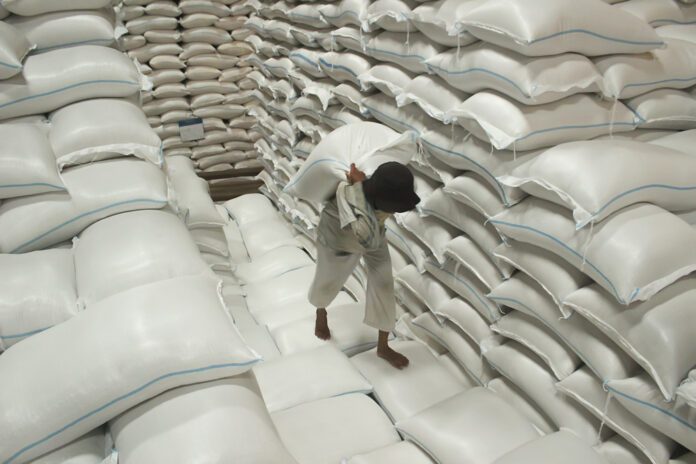Think tank and Fitch Group unit BMI said the Manila decision reducing the tariff on imported rice could help push the price of the staple higher in global markets.
Its analysts also said the reduction, while temporary under Executive Order 62, redound “to the probable benefit of traders in Vietnam, the largest exporter of rice to the Philippines.”
To a lesser extent, it also said, Thailand, another important commodity supplier, will also benefit from the tariff reduction.
According to BMI, while the tariff cut will help ease the domestic price of the commodity, its impact should not be felt at once due to feedthrough time lag.
BMI also said since India’s rice export restrictions are still in place and the El Niño episode has adversely impacted rice production in Southeast Asia, “the international rice market remains tight, which could, therefore, see an increase in Philippine import demand stimulate upward international price pressures.”
As this develops, the Philippine Chamber of Agriculture and Food Inc. (PCAFI) on Monday called on the government to remain vigilant against the likelihood for the global price of the staple to rise and remain elevated in the months ahead as a result of the tariff cut.
In an open letter addressed to President Ferdinand Marcos Jr. and signed by Danilo Fausto, PCAFI president, the group said EO 62 could have easily avoided the controversy it has generated had there been “genuine and timely consultations” prior to its issuance.
“The National Economic Development Authority’s (NEDA) insistence that the hearings of the Tariff Commission in October and March of last year constitutedcompliance with due process onlydamaged its credibility as a crisis manager,” the PCAFI said.
It said the NEDA should have conducted a separate hearing to avoid disputes down the line given the allegedly “flawed” system under NEDA as tariff cut proponent and the Tariff Commission role as fact-finding body.
“The sectors are left with no choice but to file a case on the issue of due process. By NEDA’s logic, it can go back to hearings conducted 10 or 20 years ago and insist that the proceedings therein would constitute compliance as long as it involved the same sector. This is dangerous. There will be no more new hearings,” Fausto said.
According to him, the challenge is how to implement EO 62 without a further decline in rice self-sufficiency given the impact of climate change and of the global geopolitical disruptions.
The group said the rice sector must prepare for import surges through the Special Rice Safeguard provided under Section 10 of the Rice Tariffication Law and determine this early the permissible volume and price triggers.
PCAFI said the government should also mobilize more financial resources for the agricultural sector through mechanisms as credit guarantees and insurance cover for farmers and millers while engaging local government units in programs like buying directly from farmers and cooperatives, especially during times of surplus or market failure.
Fausto said while EO 62 may be reviewed every four months, its credibility is suspect with the NEDA as review agency.
“NEDA is a very ideological agency. It has a well-known bias against local producers, especially those in agriculture and fisheries. Its body of work since we acceded to the World Trade Organization in 1995 has been just about import liberalization.
As the premier planning agency of the country, it failed to provide leadership in implementing laws like the Agriculture Fisheries Modernization Act and the Magna Carta for Small Farmers because these did not fit into their ideological framework,” Fausto said.







